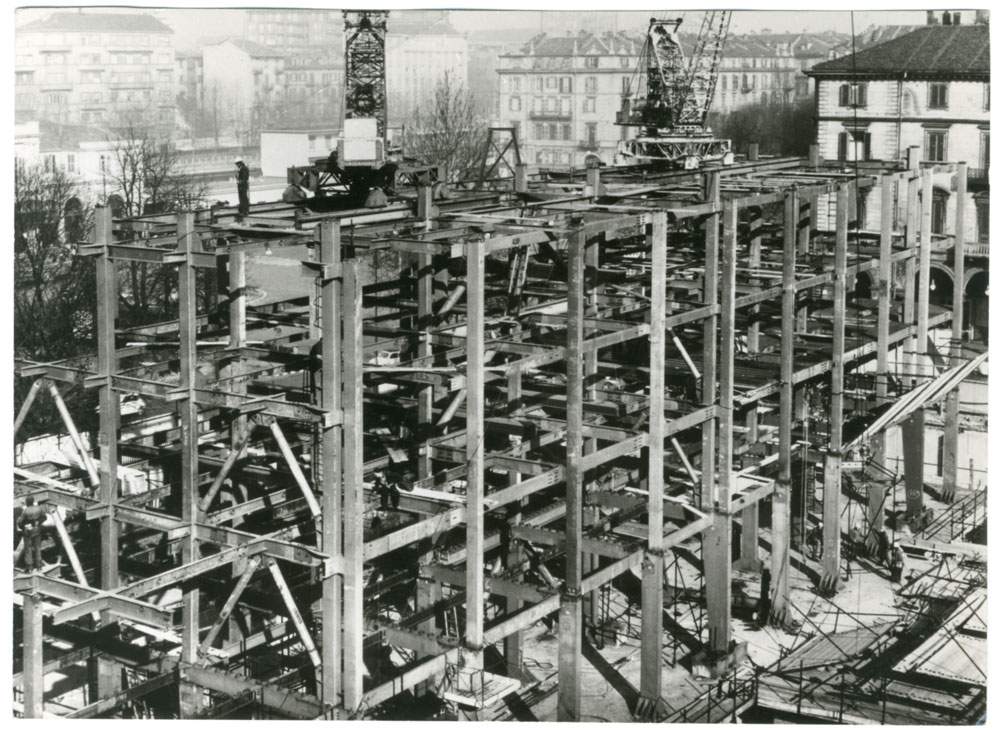The archives of the Polytechnic University of Turin make their entry into 9CentRo, a hub of the archives of the partner institutions of the Polo del ’900 and other important entities in Piedmont and Liguria that brings together more than half a million photographs, videos, documents, posters, newspapers, books and paths to retrace the history of the twentieth century in a single digital space. These are sources of great historical and civic value that hold the memory of the twentieth century: from the great labor movements, struggles and rights won, to the history and voices of the Resistance, the thought of the great protagonists of the twentieth century from Gramsci to Bobbio, from Levi to Gobetti, and much more. In addition, to enrich the heritage available on 9CentRo, the Polytechnic University of Turin is making available for consultation the historical archives of architecture and engineering preserved in the Archives section of the Central Library of Architecture “Roberto Gabetti” and the Laboratory of History and Cultural Heritage of the Interateneo Department of Science Project and Territorial Policies (DIST). Archives donated and deposited at the University, starting in the 1970s, by leading figures in architecture and engineering who have designed and built in Turin, Piedmont and the country over the past century. Projects that transformed the city and the territory can be discovered in thehub, as well as those that, having remained unrealized, reveal the imagined city. Through architecture and urban and territorial planning, it is possible to read the great themes of the twentieth century: economic housing and schools (Berlanda, B.C.R., Dolza, and Architectural Collective funds), reconstruction and quantitative building (Clara fund), monuments to the Resistance (Berlanda fund), workplaces (Rosani, Morelli funds), and urban and territorial planning (Abbate, Berlanda, Architectural Collective funds).
9CentRo was born in 2018 and over the years has seen an exponential growth in the number of sources that can be consulted: the Politecnico di Torino is not the first external partner, but other institutes are already participating, such as Compagnia di San Paolo’s 1563 Foundation for Art and Culture, ILSREC (Ligurian Institute for the History of Resistance and Contemporary Age), Sandro Penna Foundation, CREO (Ethnomusic Oral Research Center), and Leone Museum in Vercelli.
“This is an exceptional achievement for the documentation preserved at the Politecnico di Torino,” stresses Sergio Pace, dean’s contact person for Libraries, Archives and Museum. “A heritage of resources of extraordinary value, indispensable for reconstructing how the city of Turin has grown over the past decades, becomes part of an archival hub that, in turn, is a candidate to become one of the main sources for understanding the history, in Turin and Piedmont, not only of the 20th century, but also of the present time.”
"9CentRo is a constantly evolving digital ecosystem," explains Alessandro Bollo, director of the Polo del ’900, "which has gone in little more than two years from being a platform for the communication of the Polo’s archives to a hub for the integrated valorization of archival and bibliographic heritages open to external realities. Interoperability is the key word, a mode that allows heritages to talk to each other with a single access point that opens up a universe of extraordinary potential. A point of reference for research and studies on the twentieth century designed for scholars, archivists, students, but also for those approaching for the first time: enthusiasts, the curious, artists and certainly teachers who can use the archival sources and multimedia paths created by the Pole’s institutions to support teaching. In addition, to the novelty of the entry of the archives of the Politico of Turin is the addition of a graphic and structural restyling of 9CentRo, which now presents itself in a new version that makes searching among the large amount of content more intuitive and dynamic."
In addition to the increase in the number of institutions involved, 9CentRo announces another novelty: in fact, the restyling of the site was completed in May, and it now presents itself with a new structure and design. Currently by scrolling down the 9CentRo homepage, it is possible to explore the inventories of individual institutions and more than 500 funds, browse through more than 40 thousand names of historical figures, browse the collections of periodicals (the latest new entry the Fuori! first Italian magazine of emancipation of the homosexual movement) and consult more than 70 thousand multimedia objects with attached descriptions and the possibility of downloading the digitized image (for info, advice and consultation, write to archivio.biblioteca@polodel900.it). The “News from 9centRo” page has also been developed and the “Stories and Paths” section has been restructured, designed as a channel for publishing narrative content (on the Republic, Liberation, Women, Urban Transformations, etc.) gradually produced as part of the research and cultural planning activities of the member institutions of the 9centRo system.
To access 9CentRo: https://archivi.polodel900.it/
Pictured, RAI building under construction, Turin (1963-1968). Gabetti Library Archives Section, Morelli Fund.
 |
| Polytechnic University of Turin enters large archival digital space on the history of the 20th century |
Warning: the translation into English of the original Italian article was created using automatic tools. We undertake to review all articles, but we do not guarantee the total absence of inaccuracies in the translation due to the program. You can find the original by clicking on the ITA button. If you find any mistake,please contact us.